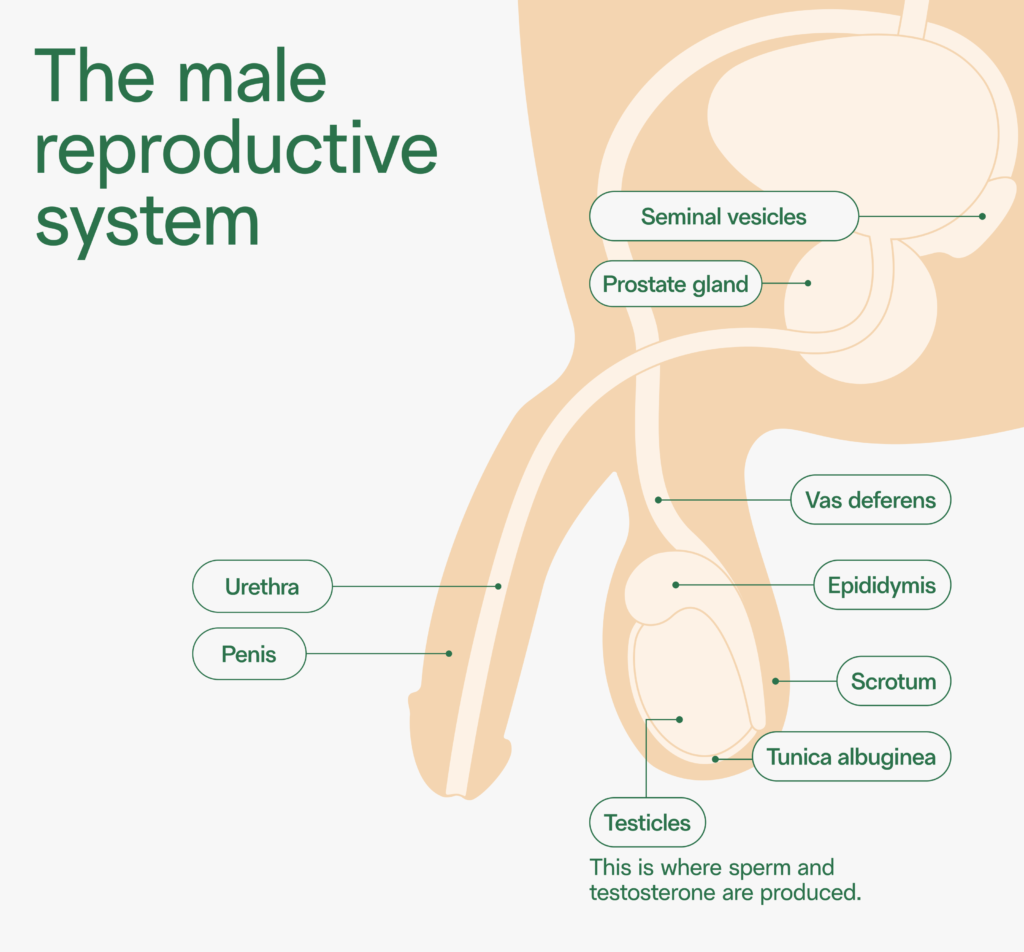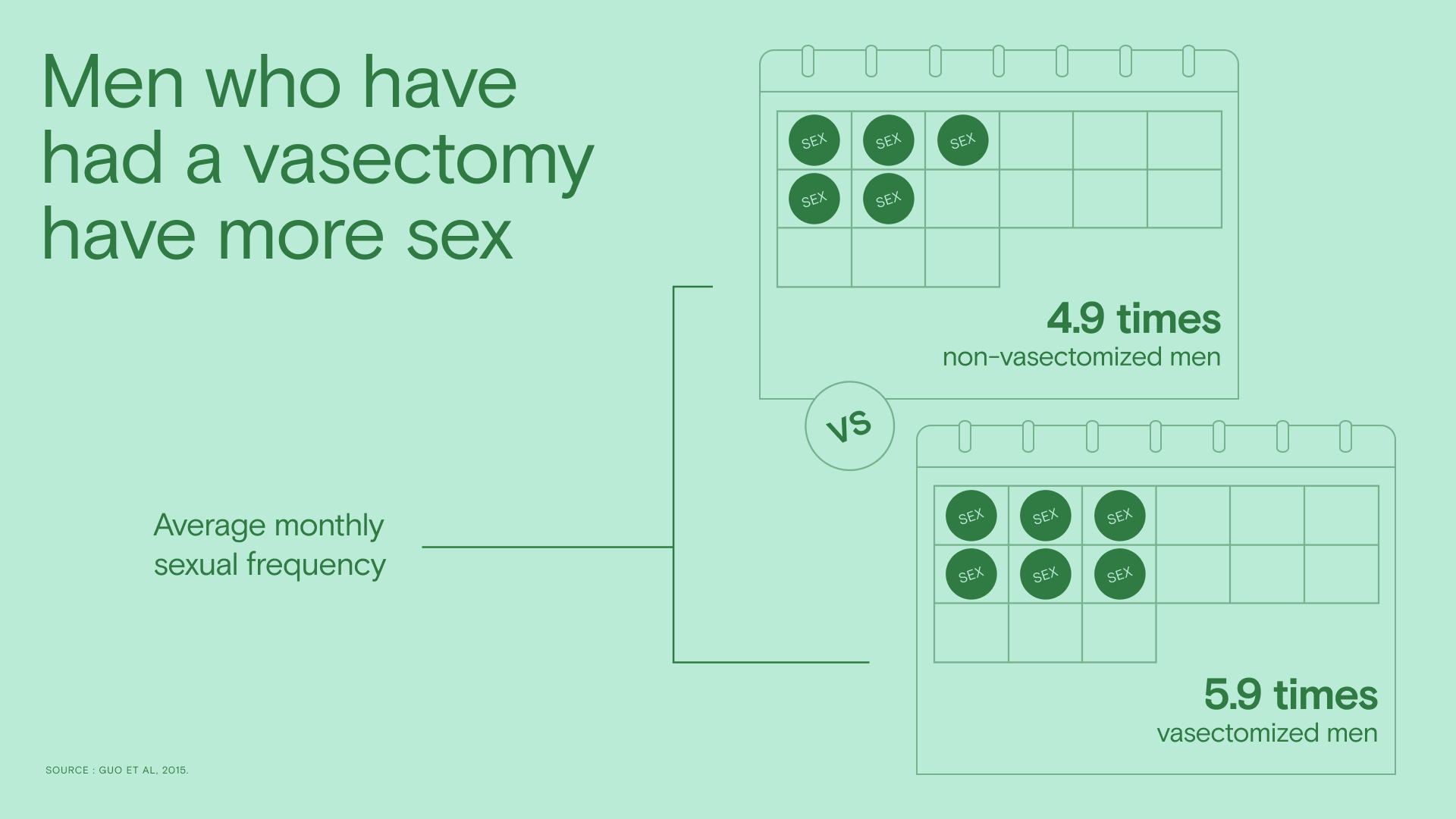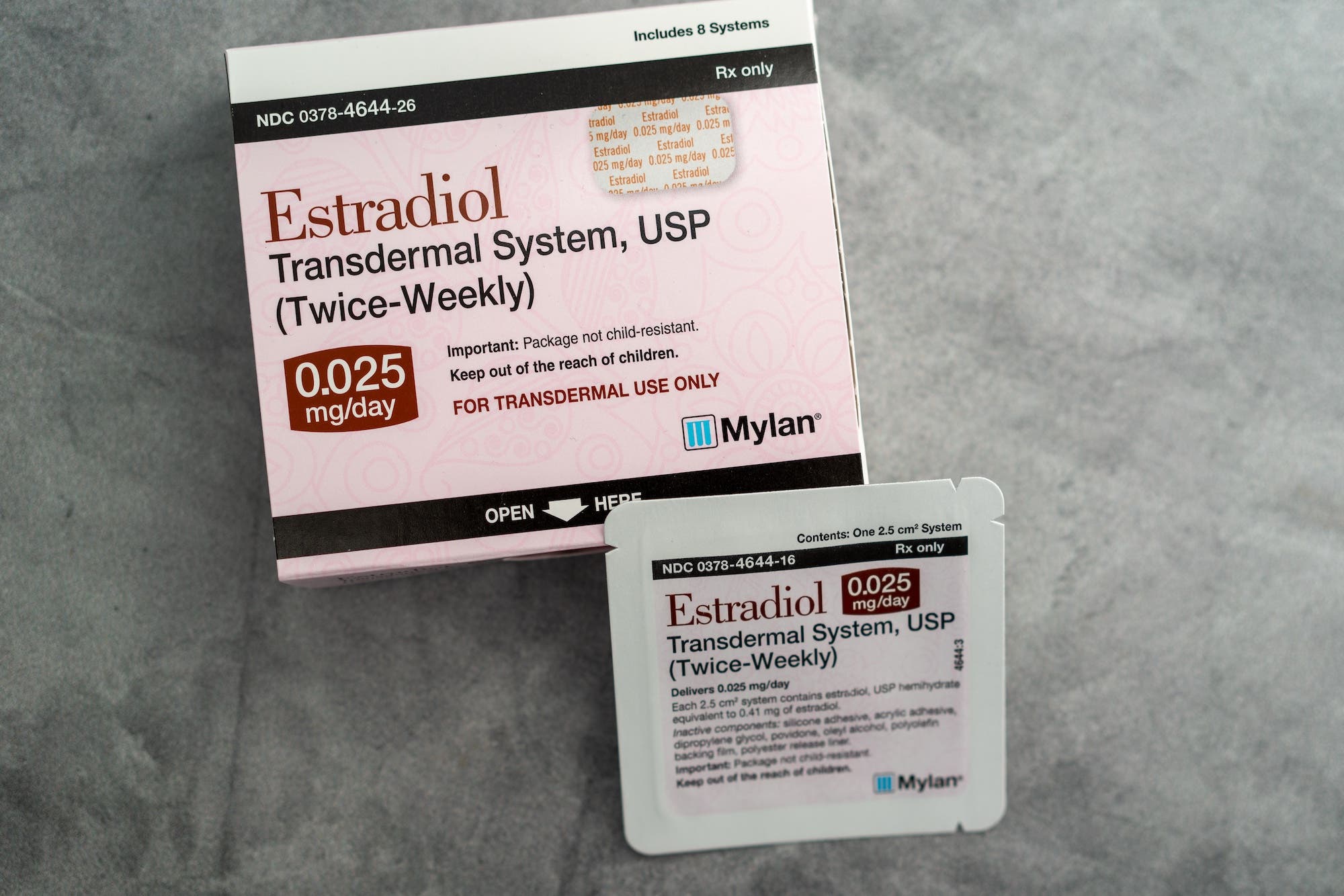Common questions among those considering this birth control procedure: Does a vasectomy affect hormones? And specifically, can a vasectomy cause low T?
That’s an understandable concern. As the primary sex hormone in men, testosterone is responsible for a few desirable things like secondary sexual characteristics, muscle growth, libido, and sexual function. Thankfully, studies have found that vasectomy does not lower testosterone. Let’s dig into why.
Key takeaways
- Studies show that vasectomy — a surgical procedure and form of permanent male birth control — does not reduce a man’s testosterone levels, impair his sexual function or libido, or affect muscle mass or strength.
- During a vasectomy, the tubes carrying sperm from the testicles to the urethra are cut and sealed. This prevents sperm from mixing with semen.
- Testosterone is produced by cells in the testicles and carried through the body by blood vessels. A vasectomy does not affect these processes.
- A variety of factors, including aging and lifestyle, can cause low testosterone.
Does vasectomy lower testosterone?
In a word, no. A vasectomy doesn’t interfere with the testicles’ ability to produce testosterone.
Vasectomy is a surgical procedure on the vas deferens, two tubes inside the scrotum that carry sperm from the testicles to the urethra. (There’s one on each side, left and right.) During a vasectomy, the vas deferens are cut and sealed by a doctor. This prevents sperm from being carried from the testicles and into semen, and ultimately out of the body during ejaculation. Vasectomy is considered a permanent form of birth control, or male sterilization.
Learn more about the vasectomy process.

After a vasectomy, the testicles continue to produce sperm. Those sperm cells simply die (a natural process called apoptosis) and are absorbed by the body. The seminal vesicles and prostate continue to produce semen (AKA seminal fluid), and men with vasectomies still have ejaculations and orgasms.
Testosterone is primarily produced by the Leydig cells in the testicles. These cells are not affected by vasectomy. Testosterone travels from the testicles through the body via blood vessels, which are also unaffected by vasectomy.
A 2018 study found that vasectomies don’t lower testosterone levels — and that there were no long-term hormonal changes after vasectomy.1 “Vasectomy had no long-term effect on the level of sexual hormones in men,” the authors stated.
More good news: A subsequent 2021 study found that men who’ve had a vasectomy are at no increased risk of other health problems like erectile dysfunction, prostate cancer, heart disease, or autoimmune disorders.2
Low T after vasectomy?
A number of things can potentially lower testosterone production, but a vasectomy isn’t one of them. These include your weight, activity level, stress, alcohol/drug use, medications, testicular disorders, and simply age — men’s testosterone levels naturally decline about 1% a year after the age of 30.4
Some possible signs of low testosterone include a low sex drive, lack of energy, erectile dysfunction (ED), weight gain, and loss of muscle mass. If you’re experiencing any of these symptoms of low T after vasectomy, it’s a good idea to check in with your healthcare provider.
Does a vasectomy make you less “manly”?
Vasectomy doesn’t affect secondary sexual characteristics, sexual function, or libido. Because hormone levels aren’t affected by the procedure, you won’t have problems building muscle after vasectomy. Or growing out your beard, enjoying sex, reciting Seinfeld trivia — or whatever manliness means to you.
Does a vasectomy hurt your sex life?
No, and research is clear on that: The vasectomy procedure doesn’t cause a decreased sex drive, lower-quality orgasms, or erectile dysfunction. Sperm only account for 1–2% of the volume of semen, so men with vasectomies generally don’t notice a difference in the size of their ejaculations or the intensity of their climaxes.

In a recent study, men who have undergone vasectomy reported better erections and orgasms after the procedure, and greater sexual satisfaction overall.4 Yep, a vasectomy could be a big boost to your sex life. Why? Sex is largely mental. Because vasectomy is a permanent form of birth control, men with vasectomies might feel less stressed about sex and more able to relax and enjoy it, once the potential to produce kids is removed from the equation.
References
1. Zhao et al. “Long-term safety, health and mental status in men with vasectomy.” 2018.
2. Yang et al. “Review of Vasectomy Complications and Safety Concerns.” 2021.
3. Erenpreiss et al, “Prevalence of testosterone deficiency among aging men with and without morbidities.” 2019.4. Angl et al. “Impact of vasectomy on the sexual satisfaction of couples: experience from a specialized clinic.” 2017.



